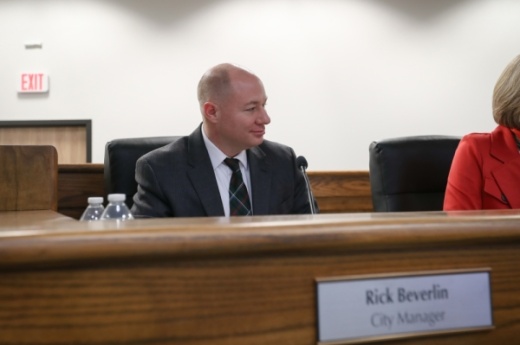Beverlin, who has has been on the job since Dec. 2, said he was born and raised in the southwest side of Houston. He has three children ages 10, 13 and 17.
Why did you want to come to Leander?
I think it’s a beautiful area. I think that all of the pieces are in place for really going to the next level. You have a range of housing. You have a robust regional economy, a lot of jobs, a lot of opportunities. Obviously, the climate is wonderful as well.
What are some of your short-term goals as you begin this position?
I think the first priorities are identifying the opportunities that are there, be they coordination with other agencies and adjacent communities ... and of course aligning the priorities of staff with those of council.
What are some of your long-term goals?
Long-term would be to build balance to the economic base to not just [maintain] the current quality of life but [to ensure there are] other opportunities for entertainment and lifestyle, not just shopping and things like that but also parks ... and trails. ... We’re already one of the premier destinations for suburban housing, statewide, but [another goal is that] we go to that next step so long-term we’re seen as and we remain a premier community that has a diverse economic base and is a great place not just to live and then work somewhere else, but to live, work and play long term.
There’s been a desire among some members of the City Council and the community at large to see more economic development in the city. What about your background makes you equipped to see that through?
I’ve worked in communities that have had a very robust tourism-hotel-restaurant economic base as well as communities that have a lot of primary jobs within their footprint, so Class A office space, business parks, things like that. ... I think that my strong set is a good fit for Leander, and I fully intend to use everything in the toolbox that I’ve been lucky enough to experience along the way here.
What do you see as Leander’s biggest challenges?
I think your challenges are also linked to your opportunities. You’ve got a wide range of housing, but I think one of the challenges is also is capitalizing on that in a near enough time frame: because you have rapid development occurring, particularly on the residential side, making sure that you can infill with enough business opportunities before the land is gobbled up. You’ve got the rooftops. You’ve got the household income. You’ve got the great school district. You’ve got transportation assets—not just the toll road but the rail. The key will be to ensure that you get some business footprint in here soon enough and it’s of the quality that will ensure long-term success for the community years to come.
What do you see as Leander’s biggest strengths?
Your location, your transportation assets, the topography. Your topography I think is a huge reason why Leander and the Austin metro area as a whole has grown the way it has. Your climate; your business; your access to jobs; highly educated workforce; well-renowned, strong school district. Leander has many things that most communities would be very envious of.
What is something you would like the community to know about you?
Primarily that I appreciate the opportunity to serve the community and the staff. And that I’m really looking forward to where we can all go together in the coming years.





